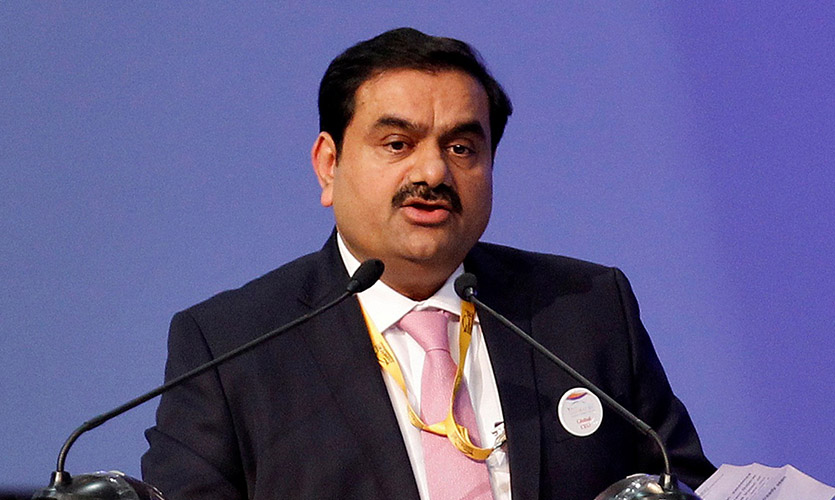In its quarterly earnings disclosure of three Adani units, the Adani Group shared, on February 7, that it is considering an independent evaluation of issues relating to legal compliance, related party transactions, and internal controls.
The statement comes following the publication of the US-based short-seller Hindenburg Research’s critical report on January 24, which highlighted numerous instances of suspected fraud at the Adani Group. Adani had then released a 413-page response denying all allegations.
The three units include Adani Green Energy, Adani Ports and Special Economic Zone, and Ambuja Cements. Adani Green earnings disclosures stated: “The management of Adani group entities are evaluating an independent assessment, basis the requisite corporate approvals, to look into the issues and compliance of applicable laws and regulations, transaction-specific issues.” While Ambuja Cement’s disclosure was similar, Adani Ports said that it would evaluate an independent assessment on the matter if required. The Hindenburg report resulted in the company withdrawing its follow-on public offer (FPO) on February 2, and its other listed firms, which resulted in the company losing nearly half of its market capitalisation.
The statement in the disclosures marks the first time the group has acknowledged that the issues will be looked into as a part of upholding good corporate governance, without actually describing the issues. The disclosure also came as Adani Group’s stocks rallied up to 20 percent on Tuesday, after promoters prepaid $1.1 billion worth of loans ahead of its maturity of September 2024, in three key companies – Adani Green, Adani Ports, and Adani Transmission. This brought relief to investors, who saw a loss of $113.6 billion in the conglomerate’s market value since the Hindenburg report came out two weeks ago. The group’s flagship company Adani Enterprises closed with gains of 14.63 percent at Rs 1,802.50 on the BSE on February 7, after surging 25 percent during intra-day trades to Rs 1,965.50. Adani Ports and Special Economic Zone (APSEZ) rose 1.33 percent to settle at Rs 553.30, after hitting an intra-day high of Rs 598.70, Ambuja Cements gained 1.12 percent to Rs 383.70, and NDTV closed with gains of over 1 percent at Rs 216.95. However, for Adani Power, despite edging higher during intra-day trade, the stock ended with losses of 4.99 percent at Rs 173.35, after briefly hitting a high of Rs 186. Adani Transmission ended marginally lower at Rs 1,251.70, against its previous close of Rs 1,261.40.
Adani Green Energy MD & CEO Vneet S Jaain remained optimistic, and said, “We appreciate that in the last few days, this has further been reaffirmed by the rating agencies, equity and credit research analysts and various banks, financial institutions, long term investors and other key stakeholders have also reassured their confidence in AGEL’s strong business model.”
Adani Enterprises’ recovery from its lows has attracted a lot of traders to the stock, said Ambareesh Baliga, a Mumbai-based independent market analyst. “Monday’s announcement of them being able to close over $1 billion loans also worked in their favour. Fundamentally speaking, looking at the issues which are there, the stock is still quite expensive,” he said. The cumulative losses of the group’s seven listed companies currently stand at $109 billion, despite Adani Ports also gaining 1.4 percent on February 7, and Adani Wilmar (ADAW.NS) adding 5 percent.
Impact On Indian Economy
The release of the report had led to financial contagion fears in India, with rating agency Moody’s warning that the Adani Group may face issues when looking to raise capital, along with S&P Global Ratings slashing the group’s credit scores to negative for two of its businesses. On February 3, based on a Reuters report, India’s Ministry of Corporate Affairs began a preliminary review of the group’s financial statements and other regulatory submissions made over the years. Furthermore, the Reserve Bank of India is looking into the exposure that local banks may face due to the Adani Group of companies as a result of the Hindenburg report.
However, Union Finance Minister Nirmala Sitharaman, on February 5, announced that the cancellation of Adani’s FPO will have no impact on India’s economy. Responding to media queries, she said, “Regulators will do their job, and they are independent of the government. It is up to them to do what is appropriate. To keep the market regulated and in prime condition is the role of SEBI, and it has done that.” She further asserted, “How did our foreign exchange reserves grow by $8 billion? Our macroeconomic fundamentals or our economy’s image has not been affected.”
Emerging market investor Mark Mobius continued with the sentiment that the recent developments at Adani would hold no impact on the Indian economy. Mobius told Bloomberg, “It’s an Adani problem. India is still going to go from strength to strength. It’s an incredible country with incredible prospects. I think it’s just one of the typical scandals you get in capital markets and it’ll pass.” On the now-scrapped Adani FPO, he said, “We were not interested in Adani companies because they did not meet our investment criteria, particularly as regards to debt.”
Major lender SBI, when assessing its exposure to Adani Group, disclosed that its total loan to the enterprise stood at 0.88 percent, or Rs 270 billion of total loans as of the quarter that ended in December. Most of these loans are secured against cash-generating assets, and no loans were taken against shares by the group. However, state insurer LIC has expressed concerns about their exposure to losses incurred by the Adani Group.
Explainer: What Is The Hindenburg Report That Accuses Adani Of Fraud?









